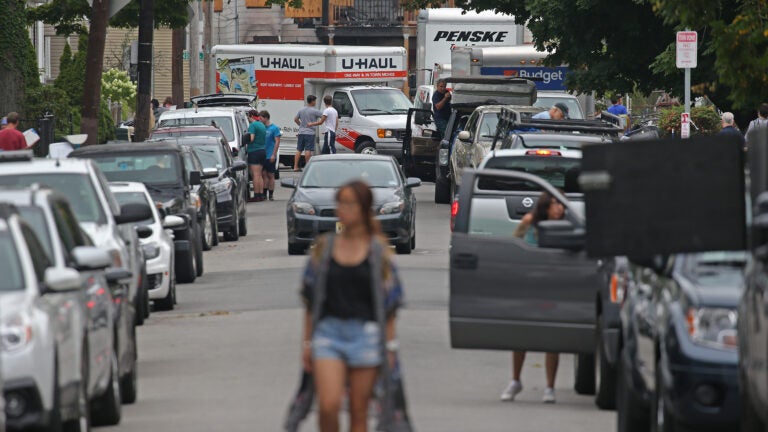Moving season is drawing near. Here’s how to avoid rental scams.
Last month, the local FBI office said it has seen a significant increase in the amount of money being lost to scammers.

Get ready to see U-Haul trucks clogging side streets and discarded furniture on sidewalks — moving season is fast approaching for residents of Boston and the surrounding areas. Numerous aspects of the moving process can be stressful, especially in a city where many leases terminate on the same day. But in the rush of finding a new place, residents should not let their guard down when it comes to scams.
Last month, the FBI’s Boston Division warned the public after observing a spike in rental and real estate scams. Law enforcement officials have seen a “significant increase” in the amount of money being lost by people looking for a good deal, according to Special Agent in Charge of the FBI Boston Division Joseph R. Bonavolonta.
“Scammers are cashing in on renters who need to act quickly for fear of missing out, and it’s costing consumers thousands of dollars, and in some cases, leaving them stranded,” he said in July. “We are asking everyone to exercise caution, especially over the next few months, as folks look to book last minute summer getaways.”
But what does a typical rental scam look like, and how can people avoid them? The Better Business Bureau (BBB) has offered some guidance.
The scams usually start with an online property listing that might appear too good to be true: lots of amenities, low rent, and idyllic pictures. These listings are designed to look legitimate, according to the BBB, and con artists often use real photos and descriptions stolen from other sites.
Once people respond to a listing to inquire about the property, a fake “landlord” will often reply and claim to be unable to show the property, perhaps because they are out of town. Another common excuse is that they are in the hospital with a health emergency.
For a scam like this to work, the person behind it must create a false sense of urgency, according to the BBB. This can be done by telling the target of the scam that other people are also interested in the property, so immediate action is required. Fake landlords will usually ask for a security deposit and first month’s rent to reserve the property.
Scammers could also claim that those interested in a property can see it through a rental agent, but only after paying a deposit. Sometimes, the people posing as landlords will require prospective tenants to complete an application form, which asks for sensitive information like Social Security numbers.
Once the scammers get their money and documents, they will stop responding and effectively disappear.
Another common rental scam, according to the FBI, can target people who are advertising rental property online themselves. A scammer will contact the person advertising the property, and agree to a price. They will then forward a check for the deposit to the victim. Usually, this check will be written for more than the amount required, and the scammer will ask for the remainder to be remitted back to them. Occasionally, the check will be written for the correct amount, but the scammer will back out of the rental agreement and ask for a refund.
Since banks do not usually place a hold on these funds, according to the FBI, the victim will gain immediate access to the money and be fooled into thinking that the scammer’s check has cleared. Ultimately, these checks will be found to be fraudulent and the victim is held responsible by the bank for all losses.
The FBI’s Internet Crime Complaint Center provides people with a means of reporting internet-facilitated crimes. Information from this site has shown a steady increase in losses reported by victims of these types of crimes both nationally and locally over the past three years.
Last year, 11,578 people reported losing $350,328,166 due to real estate or rental scams across the country. This is a 64% increase from 2020, according to the FBI. The Boston Division, which includes all of Maine, Massachusetts, New Hampshire, and Rhode Island found that 415 victims reported $13,424,269 in losses in 2021. This is a 27% jump from the previous year.
The actual losses that people were subject to are most likely much higher, according to the FBI, since many are hesitant to report they were scammed.
The BBB offered a few tips to help people avoid scams:
- Watch out for deals that are too good. Scammers lure you in by promising low rents, extra amenities, and a great location. If the price seems much better than elsewhere, it may be a scam.
- Search online for similar properties. Do a quick search for the listing, scammer’s email address, or phone number. If you find the same ad listed in other cities, that’s a huge red flag.
- See the property in person. Don’t send money to someone you’ve never met for an apartment you haven’t seen. If you can’t visit an apartment or house yourself, ask someone you trust to go and confirm that it is what was advertised.
- Don’t pay a stranger with cash transfer apps. Many scammers now ask for payments through peer-to-peer apps instead of wired funds or prepaid debit/gift cards. Only use these apps with people you know. It’s ok to pay a landlord you trust with Venmo, Zelle, or another P2P app, but don’t use this payment method to secure an apartment or pay a deposit.